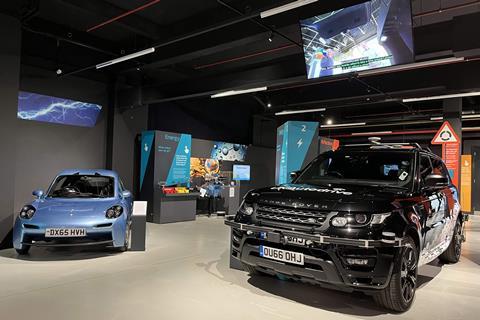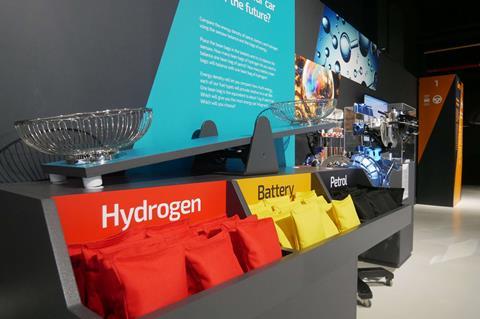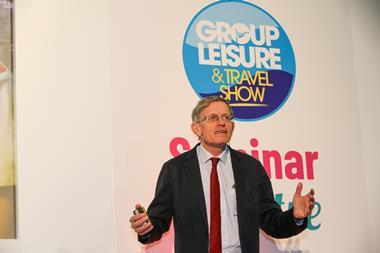The British Motor Museum has opened an exhibition which looks at the technologies that are bringing cars into the future and the effects on the world.

The museum in Gaydon, Warwickshire, says that the car has shaped our world for the better but also for the worse, and wants to showcase the motor industy’s efforts to find cleaner, safer and more efficient ways to travel.
Transitions: The Impact of Innovation will run until the summer of 2024, with visitors said to leave the exhibition with a greater insight into the direction car engineering will take in the years to come and how this will affect our day-to-day lives.
Stephen Laing, head of collections at the British Motor Museum, added: “We are in a period of radical change and can see how quickly cars are shifting.
“Fobs, keypads, push buttons, and smartphones have been steadily replacing the familiar key turn. Electric motors are slowly supplanting internal combustion engines, while drivers are being supplemented with autonomous controls. Transitions looks at what the car will become in the future and how the industry will take us there.”
Pre-booked groups of 12 or more people qualify for discounted rates, as well as free coach parking and guided tour options. Transitions: The Impact of Innovation is included within the admission price.
Exhibition highlights
The display uses a combination of cars and interactive stations to illustrate areas of future development, such as how cars will be powered, their impact, the materials they use and alternative methods of control.
A range of vehicles are on display, including a 1922 Ford Model T, a hydrogen-powered Riversimple Rasa, a sectioned Nissan Leaf electric car, and a 2016 Range Rover Sport autonomous test vehicle.

Each car was selected to illustrate a point in the development to date, from the first mass-produced car to a working car powered by hydrogen fuel cells.
The vehicles are displayed alongside a varied range of interactive elements which allow comparisons between different technologies. For example, visitors can compare the energy density of different fuels or test an autonomous car simulator, to see how much they would trust an autonomous car in the real world.
There is also a display case at the beginning of the exhibition, containing motoring-related objects that have become obsolete which acts as a reminder of how fast technology is moving.
For more information about group visits to the British Motor Museum, go to www.britishmotormuseum.co.uk.












